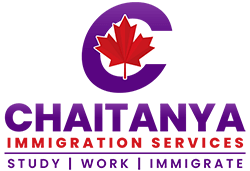As a nation with a commitment to family reunification and keeping loved ones together, Canada offers a number of immigration programs that provide Canadians the opportunity to sponsor their family members to Canada.
HOW DO I BECOME A SPONSOR?
You are eligible to become a sponsor in Canada if you meet the following points which are mentioned below:
- You are an adult.
- You hold Canadian citizenship or Permanent Residence.
- You have enough financial income to provide for the person you are sponsoring.
- You are not receiving social assistance (child support, alimony).
- You have not declared bankruptcy.
- You do not have a Removal Order.
DOCUMENTS REQUIRED FOR CANADA DEPENDENT VISA:
- Passport information and travel history.
- Documents to prove your background.
- Documentation for a spouse or partner, such as a marriage certificate.
- Other evidence of a relationship.
- To demonstrate adequate funds, the sponsor must provide proof of income.
- Consulate fees and a completed application.
ELIGIBILITY REQUIREMENTS TO SPONSOR A SPOUSE:
- You must be at least 18 years old to participate.
- You must either live in Canada or plan to return once your spouse or partner become a permanent resident.
- For the following three years, you must be able and willing to meet your spouse’s or partner’s basic financial necessities.
- You will not have allowed to sponsor your partner unless they are a member of the family class. To sponsor your spouse, you must be a citizen, permanent resident, or have a work visa.
- You must have a real relationship with your spouse, one that was not formed only for the purpose of obtaining permanent residency. Your relationship must be at least a year old.
CHILD VISA TO BRING DEPENDENT CHILDREN TO CANADA
- Child adopted outside Canada when the sponsor was a Canadian citizens or permanent resident living in the country.
- Child that they intend to adopt in Canada.
- Sponsor’s brother or sister, nephew or niece grandson or granddaughter if they are an orphan and meet the eligibility criteria.

